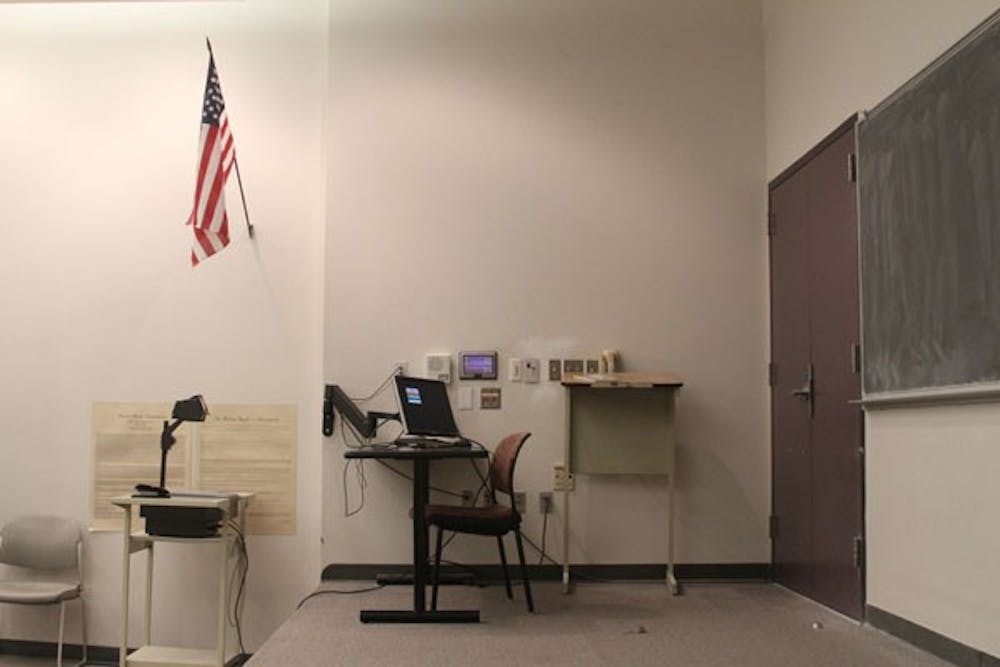Work and stress are synonymous for many people, and one student is researching how social support can affect the stress levels of those trying to balance home and work life.
Justin Boren, a fourth-year communications doctoral candidate, said he is specifically interested in work-life balance and the “intersection of families and organizations.”
“This study is looking at how social support impacts the physical and psychological manifestations of stress in the workplace,” Boren said.
This includes having participants, who are ASU staff members, in social support groups and learning how to provide and elicit support from each other, he said.
There are about 60 participants at this point and the study is about to start. The study phase will take around six weeks, Boren said.
“I’m really focused more on how we can rebuild the social structure, the social environment, of work places using social support to improve the individual well-being,” Boren said.
The goal of the study is to “work on social support as being the primary influence of an individual’s stress,” he said.
The end results could be used for other organizations and workplaces besides ASU, he said.
The inspiration for this study was Boren’s own experience in the workplace.
“I worked in corporate America for a while and realized that one of the issues that I always felt stressed about was the fact that my co-workers wouldn’t support me if I wanted to take a day off,” he said.
Even if the organization supports workers with work-life balance policies, workers don’t always utilize them, Boren said.
“The co-workers are creating a culture of resentment where they know that if somebody takes time off, a fellow co-worker may … either explicitly or implicitly imply that that’s not really appropriate for that culture,” Boren said.
He has found these results in a study he worked on in the past.
“Organizational members create a culture in which they may influence other members of the organization to not take use of work-life balance policies,” he said.
Boren said the results of the study also found that when there were high levels of resentment in an organization, workers wouldn’t balance work and home life as much.
“If there was a culture in which organizational members would support each other instead of making those negative messages,” Boren said, “then not only does that improve potentially workers’ health and psychological well-being, but also gives individual workers the ability to take leave and not feel threatened by doing that.”
Jess Alberts, a human communication president’s professor, is Boren’s dissertation adviser.
“The great thing that it does is it provides a way for organizations to help individuals reduce their stress and improve their health,” she said.
Workers can interact with each other in a positive way to get health and psychological benefits if the study is effective, or, depending on how the company wants to use the study results, there is a possibility of actual social group meetings in the office.
“If it’s proved to be effective … it’ll be a relatively inexpensive and not too intrusive way of helping or teaching people in the work place to support each other and reduce stress through their communication,” Alberts said.
Zach Price, a human communication senior, works with Boren through a class.
“I assist … usually graduate students who are doing their dissertations or their research,” he said, adding that he was interested in Boren’s stress research.
“I’ve come to deal with stress myself,” Price said. “It’s a big college thing, dealing with stress and … better ways you can do it.”
Reach the reporter at reweaver@asu.edu





